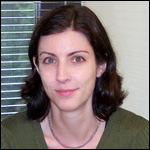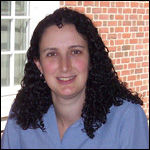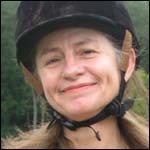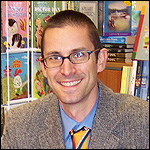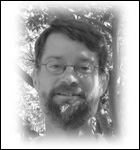5 Faculty Awarded Career Enhancement Grants
| Posted 03/15/06 |
| Five Wesleyan faculty members received Mellon Career Enhancement Grants for the 2006-07 academic year.Wesleyan, along with Amherst College, Grinnell College, Oberlin College, Pomona College, Reed College, Smith College and Williams College, are in the third year of a major collaborative grant from the Mellon Foundation to enhance faculty career development. Faculty members from each of the institutions compete for semester research leaves, summer stipend grants, and workshop grants designed to encourage and promote increased scholarly activity for the faculty of the eight institutions.
Hilary Barth, assistant professor of psychology, and Abigail Hornstein, assistant professor of economics, received Mellon Summer Stipend Grants. Laurie Nussdorfer, chair of the College of Letters and professor of letters and history, and Ethan Kleinberg, associate professor of letters and history, received a Mellon Workshop Grant. Stephen Angle, associate professor of East Asian Studies, associate professor of philosophy, chair of the East Asian Studies Program and director of the Freeman Center for East Asian Studies, received a Mellon Semester Research Leave. Proposals for these grants are reviewed at each participating institution by a committee including the academic deans. This is the fourth year the Mellon grants were issued.
Barths research project is titled “Visual statistical processing in young children.” The project is based on the previous finding that adults can rapidly extract certain kinds of quantitative information from visually-presented sets. For example, after a very brief look at a large set of elements, we have a good idea of the average size of all of the elements in the set, Barth explains. We don’t have to be told beforehand to try to figure out the average size of this bunch of objects: we seem to extract this statistical summary information about the set very quickly and automatically. This finding is relevant to her broader research program, which concerns the remarkable quantitative skills children possess even prior to formal education. The rapid extraction of statistical summary information from visual stimuli is likely to play an important role, yet scientists know very little about this ability in children. This summer, Barth and her lab assistant will explore the way this ability contributes to young children’s quantitative cognition. Hornstein plans to work with Minyuan Zhao from the University of Minnesota to study the relationship between effective capital budgeting and the internalization of research and development using a panel dataset of U.S. firms in the 1990s. To estimate the efficacy of a firms capital budgeting decisions, she will use a self-developed process, and acquire patent application data from the U.S. Patent Office. Hornsteins proposed study will examine issues that she discusses regularly with her Wesleyan students, for example corporate investment criteria, how firms make capital budgeting decisions, and how firms evaluate investments. This research may also be of interest to my colleagues who teach industrial organization courses as firms use patents to buttress firm boundaries and maintain first-mover advantages, she explains. In the long-term, Hornstein anticipates teaching courses that combine corporate finance and corporate strategy. These courses would share a common theme: how to develop and maintain a firms competitive edge while maximizing shareholder wealth.
Nussdorfer and Kleinberg are spearheading a workshop collaboratively. It will be titled Philosophy and Literature: Reading across the Disciplines, and is scheduled for May 9-10, 2007. The professors are inviting several scholars to explore the intersections, relations and tensions between literary and philosophical studies. The workshops morning sessions will be open to the public and academic community, in which two invited presenters, one from literary studies and one from philosophy, tackle the same text, each from his or her perspective. In addition, experts from Wesleyan and other area institutions will convene to explore specific aspects of topics raised in more detail, drawing on the insights of the public sessions. The focus will be not so much on what the two different disciplines are as on what literary scholars and philosophers actually do when they interpret a text, and what assumptions or mechanisms guide their arguments and interpretations, Kleinberg explains.
|
| By Olivia Drake, Wesleyan Connection editor |


